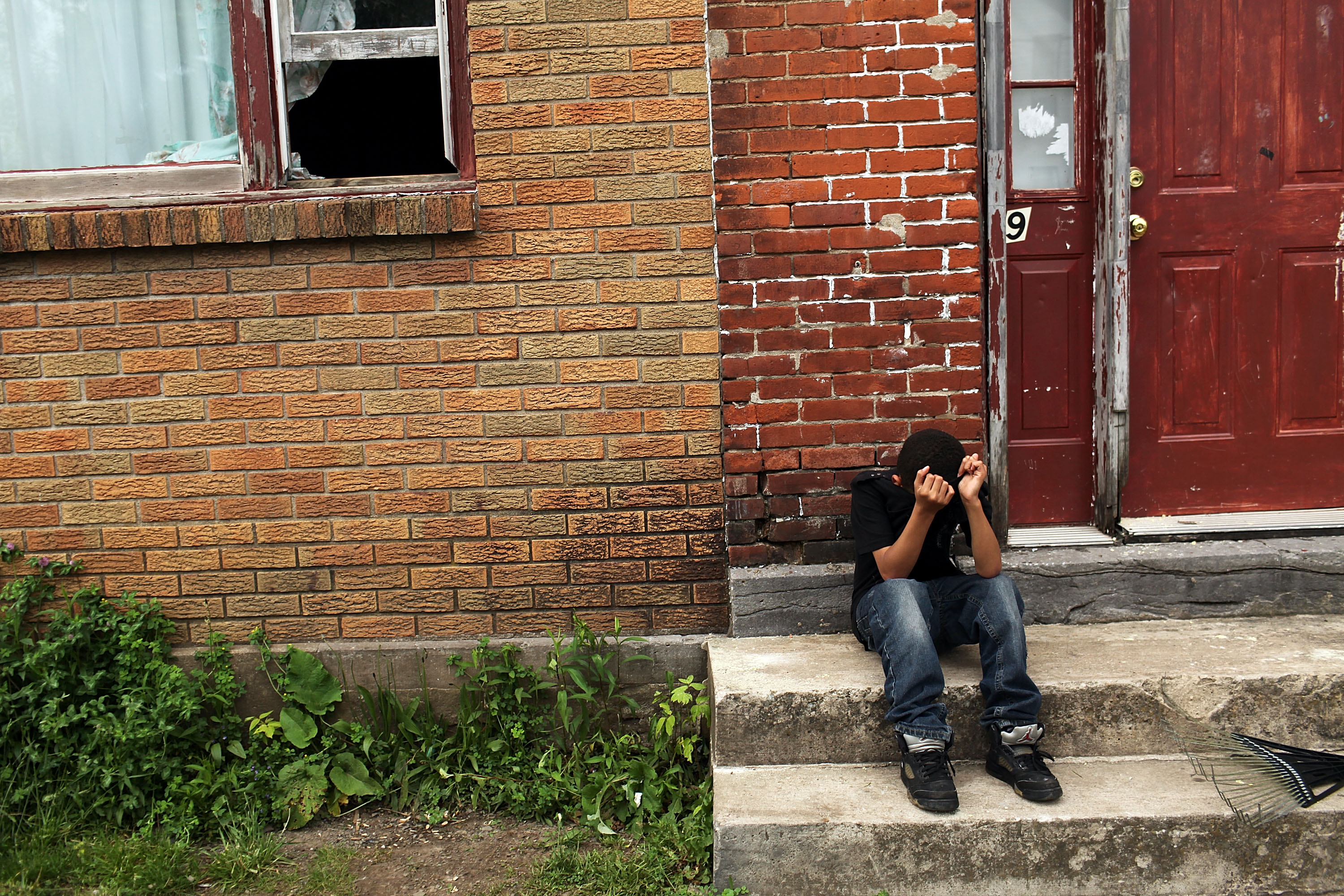How do you fight poverty? Look to ObamaCare.
There's only so much the market can do. Other institutions have to pick up the slack.


A free daily email with the biggest news stories of the day – and the best features from TheWeek.com
You are now subscribed
Your newsletter sign-up was successful
A new estimate of the poverty rate from the Census Bureau has sparked a familiar round of hand-wringing from mainstream and conservative commentators. Poverty is unchanged for the fourth consecutive year, leading Republican budget maven Paul Ryan (Wis.) to argue that U.S. poverty programs should be overhauled. "Rather than just treating the symptoms of poverty, our goal must be to help people move from welfare into work and self-sufficiency," the congressman told The New York Times.
However, the Census data also included another important measurement: the percentage of the population without health insurance, which has sharply fallen because of ObamaCare. This points toward a far better approach. If we rely on market institutions alone, then a huge fraction of the population will inevitably be poor and lacking health insurance. Only with concerted action from the state can poverty or uninsurance be abolished.
So Paul Ryan wants to get poor people working and make them "self-sufficent." He expanded on this argument in a recent TEDx speech:
The Week
Escape your echo chamber. Get the facts behind the news, plus analysis from multiple perspectives.

Sign up for The Week's Free Newsletters
From our morning news briefing to a weekly Good News Newsletter, get the best of The Week delivered directly to your inbox.
From our morning news briefing to a weekly Good News Newsletter, get the best of The Week delivered directly to your inbox.
The problem is our strategy. It's the way we think about poverty. Most of us think poverty is about deprivation — or not having enough money. We treat empty wallets like potholes. Fill them up and move on. [TEDx]
The problem with this argument is that it could be applied equally well against working. Getting a job helps stop poverty by putting money into your wallet on a regular basis. So long as an anti-poverty program isn't just a one-off handout, then it will work against poverty just like a job will.
Stated this way, it's an obvious point, but this is actually a devastating blow to Ryan-style thinking. Consider Social Security, the largest anti-poverty program in the nation by far, and one that is never mentioned when Ryan is doing his poverty shtick. This is a program that, quite literally, fills up the wallets of retired people.
But, the objectors might object, those people are old! They deserve their benefits, because they can't work. A fair point, but the same is true of the vast majority of poor people. Over 80 percent of poor people are either children, students, disabled, elderly, or the involuntarily unemployed. These are people who can't work for one reason or another, and hence cannot get any market income.
Ryan always talks as though the vast majority of poor people are able-bodied adults who don't have jobs because they don't have enough education, skills, or work habits — implying that their poverty is in some sense their fault. There are such people, but they make up about 15 percent of the total poor — and over half of those people attribute their lack of work to taking care of their home or family.
A free daily email with the biggest news stories of the day – and the best features from TheWeek.com
So the absolute upper bound of what a Ryan-style poverty approach could achieve on poverty is a reduction of 10 to 20 percent, and that's if his proposed surveillance bureaucracy actually gets people into jobs, which it won't. (Under Bill Clinton's welfare reform, benefits hinged on work requirements, which ended up basically destroying the program.)
A far better approach would simply be to construct Social Security-style programs aimed at each vulnerable population — a $300 monthly child allowance, for instance, would instantly cut child poverty by half.
The concrete virtues of this approach are demonstrated in America's uninsurance rate. Due to ObamaCare finally getting up and running, the uninsurance rate fell from 13.3 percent in 2013 to 10.4 percent last year.
How did it achieve this? First, and most importantly, through a big expansion of Medicaid, a social insurance program. (Gains would have been even more impressive had it not been for the conservative states with sky-high uninsurance rates that have refused the expansion.) Secondly, it mandates that everyone who doesn't have insurance must buy it, and provides subsidies for those who can't afford coverage.
That's not as good as Medicare for everyone, and it still needs some big adjustments, but it's basically workable. Most importantly, it doesn't fuss about trying to funnel absolutely everything through the market income channel. Market institutions will provide security tolerably well for the top half of the income distribution, but if we're talking universal insurance or poverty, when the system can't provide full employment, simple government benefits work better.
Ryan Cooper is a national correspondent at TheWeek.com. His work has appeared in the Washington Monthly, The New Republic, and the Washington Post.
-
 The ‘ravenous’ demand for Cornish minerals
The ‘ravenous’ demand for Cornish mineralsUnder the Radar Growing need for critical minerals to power tech has intensified ‘appetite’ for lithium, which could be a ‘huge boon’ for local economy
-
 Why are election experts taking Trump’s midterm threats seriously?
Why are election experts taking Trump’s midterm threats seriously?IN THE SPOTLIGHT As the president muses about polling place deployments and a centralized electoral system aimed at one-party control, lawmakers are taking this administration at its word
-
 ‘Restaurateurs have become millionaires’
‘Restaurateurs have become millionaires’Instant Opinion Opinion, comment and editorials of the day
